- Star quarterback shows why it takes more than talent to succeed
- Three cheers for the supervisors
- Environment honours outstanding faculty and staff
- Philanthropic champion supports a low-carbon, resilient future
- Electric vehicle challenge coming this weekend
- Q Lot permit holders don't have to go home, but they can't park here
Editor:
Brandon Sweet
University Communications
bulletin@uwaterloo.ca
Star quarterback shows why it takes more than talent to succeed
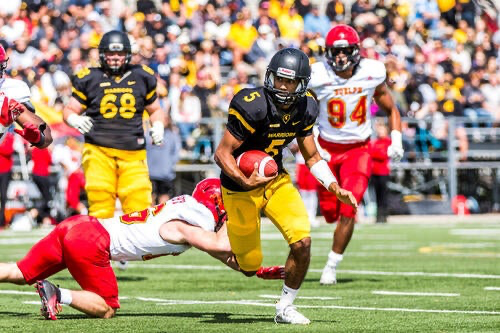
It might seem strange to talk about Tre Ford’s talent, if only because the conclusion is so evident: of course Ford (BA ’22) has talent. He’s arguably the most talented player in the history of the Warriors football program.
The awards and accolades speak for themselves: Ford graduates this year with every school passing record and was twice named MVP of the Ontario University Athletics (OUA) conference. He also became the first Warrior — and first Black quarterback from any school — to claim the prestigious Hec Crighton Trophy as the most outstanding university football player in Canada. Most recently, Ford was awarded the Doug & Lois Mitchell Trophy as U SPORTS Male Athlete of the Year.
Ford’s talent is obvious because he had an opportunity to develop it as a quarterback at Waterloo – along with a tireless work ethic and desire to perfect his craft. But historically, those leadership opportunities are less likely to be afforded to Black athletes.
Now, Ford is working to prove himself as a quarterback in the NFL or CFL. Ford was recently selected by the Edmonton Elks in the first round of the CFL draft. Ford has also been invited to rookie mini-camps for the Baltimore Ravens and New York Giants. Eventually, he’s hoping to become a football coach, where he can give other Black athletes those opportunities.
Read the rest of the article in the Waterloo Magazine.
Three cheers for the supervisors
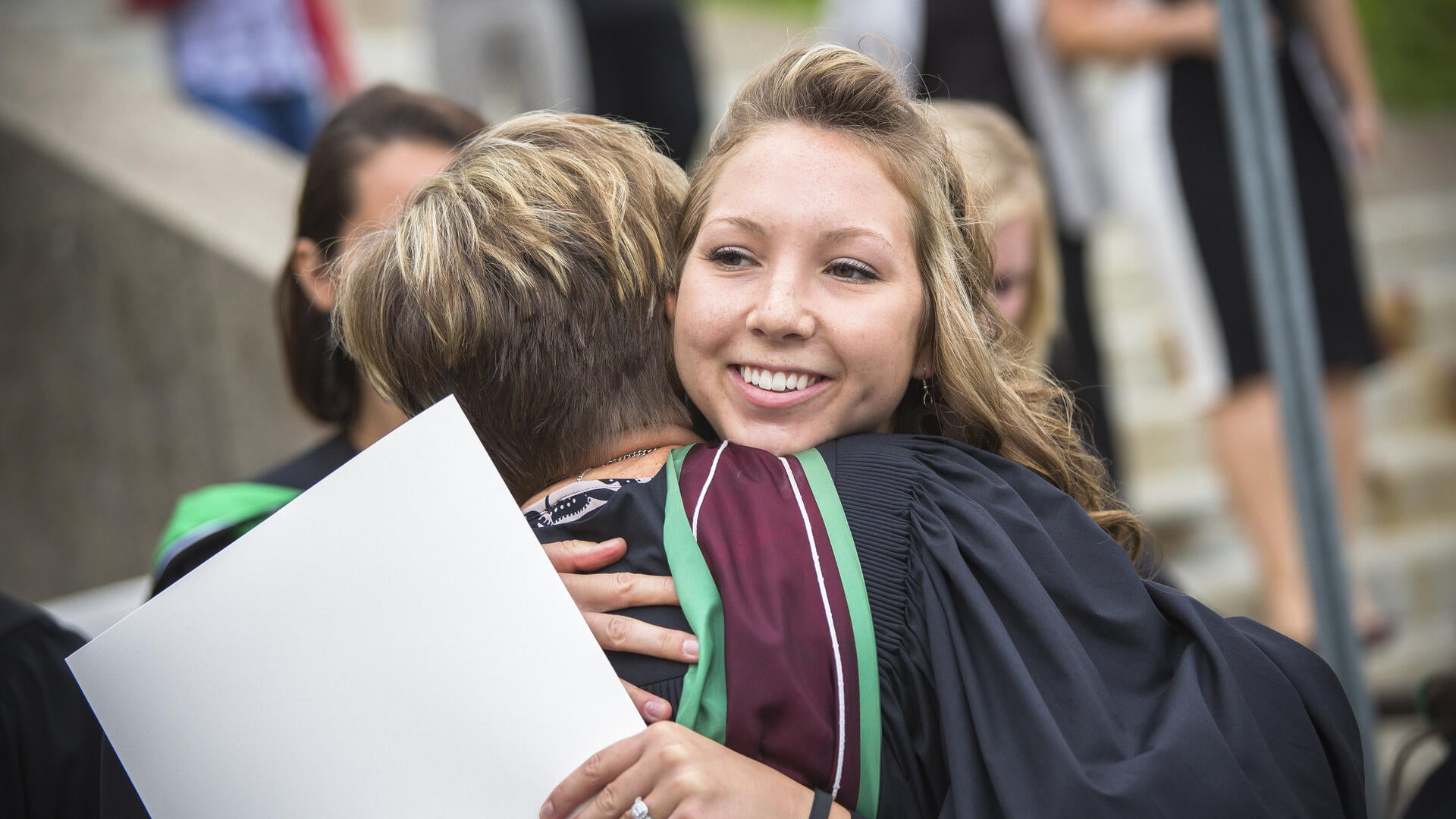
By Brian Caldwell, Wendy Philpott and Jon Parsons. This article was originally published on Waterloo News.
Each year at Spring Convocation, Graduate Studies and Postdoctoral Affairs (GSPA) and the Graduate Student Association (GSA) recognize outstanding professors who went above and beyond in their work as supervisors.
The nominations and adjudication for the annual Award of Excellence in Graduate Supervision use submissions from former graduate students themselves, who rate and reflect on their experiences working with faculty members.
This year’s winners are Claudio Cañizares, Jay Dolmage and Gord Willmot.
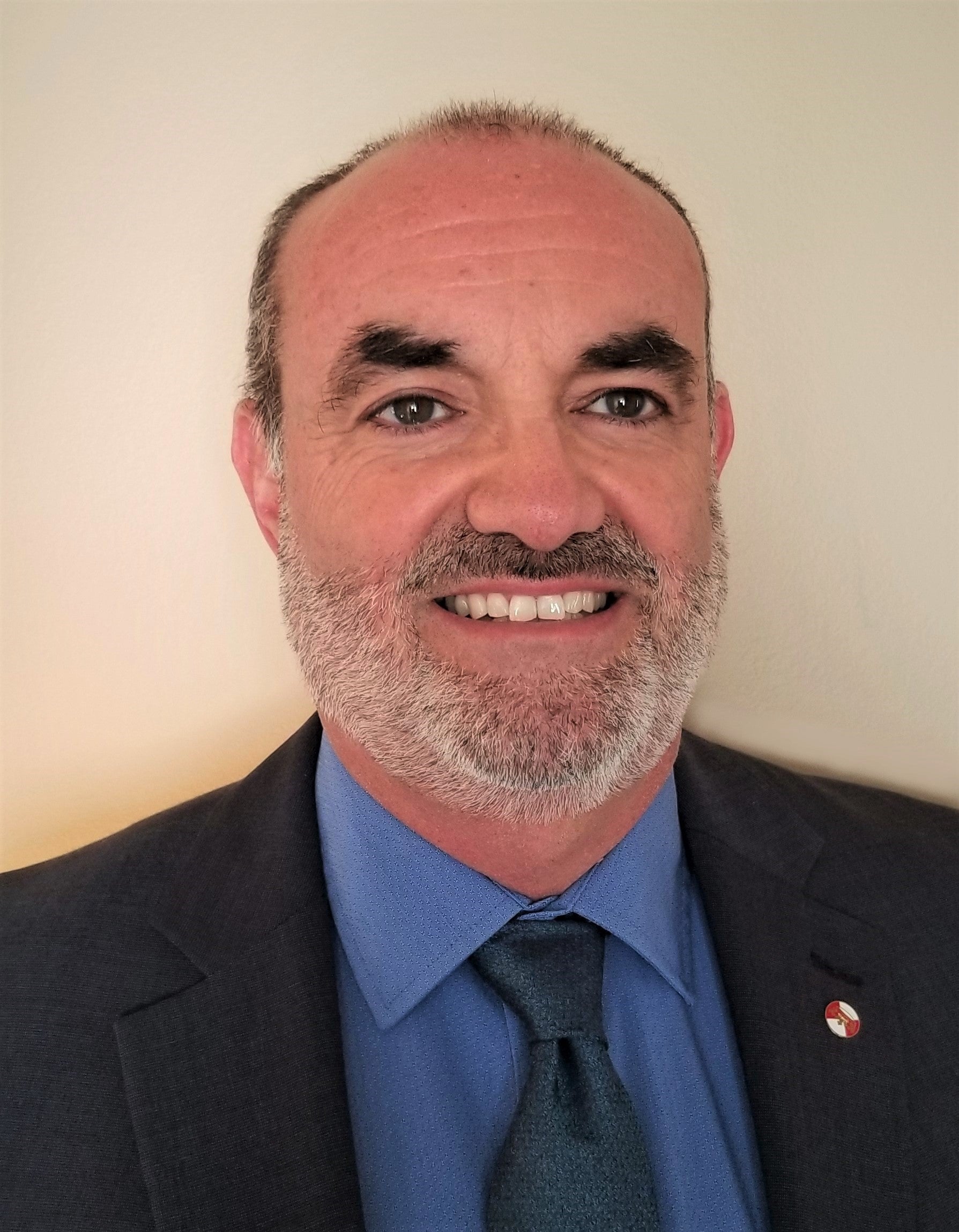
Claudio Cañizares is a professor of electrical and computer engineering, a Hydro One Endowed Chair and executive director of the Waterloo Institute for Sustainable Energy. He obtained his undergraduate degree in Ecuador, and master’s and doctoral degrees at the University of Wisconsin-Madison.
Cañizares has held a variety of academic and administrative positions since joining Waterloo in 1993. His research focuses on the stability, control, modeling, simulation and computational issues in bulk power systems, microgrids and energy systems.
Author or co-author of over 350 academic publications, Cañizares has also supervised or co-supervised more than 170 graduate students and research fellows.
In a citation for the award, longtime colleague Siva Sivoththaman described him as a demanding but extremely supportive supervisor whose students have gone on to impressive careers in industry and academia.
Cañizares himself counts being friendly, “but not overly so,” as well as professional, accommodating and considerate as key traits for an effective supervisor. He also stresses the need for respect, encouragement, recognition and fairness to go along with high expectations.
His final word? “Put the interests and needs of students first.”
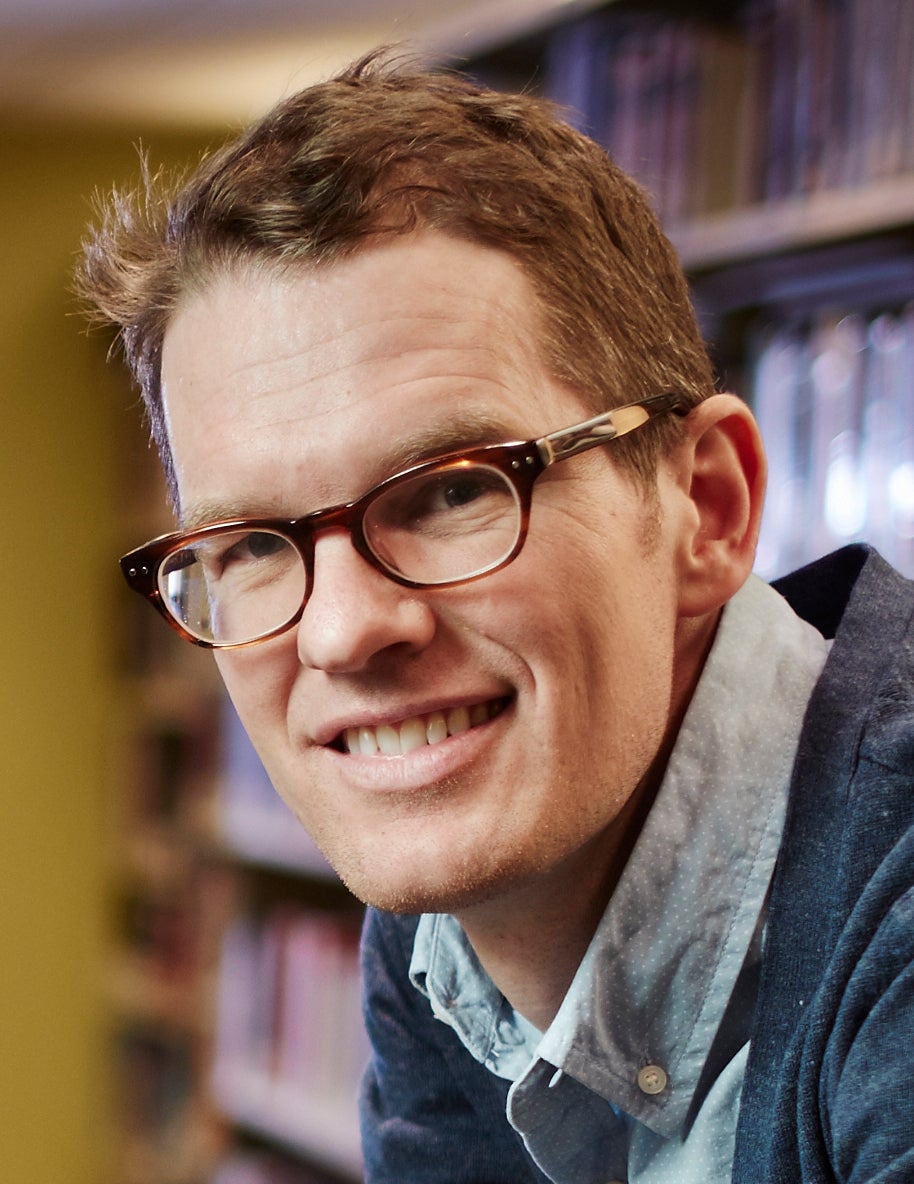
Jay Dolmage, professor of English, is the epitome of a student-focused faculty member. He is as dedicated to mentoring, advising and instilling confidence in his graduate students as to his own scholarship.
Dolmage is widely published on topics both timely and significant – disability, accessibility, race and immigration. He is a founding editor of the multidisciplinary Canadian Journal of Disability Studies and in 2020 was named to the RSC’s College of New Scholars, Artists and Scientists.
In his decade at Waterloo, Dolmage has supervised nine PhDs to completion, is currently overseeing seven dissertations and served on more than 19 PhD committees providing support and advice to students both within and outside the Department of English Language and Literature.
Attributing graduate success to collaboration and teamwork, Dolmage encourages his students to explore interests, even if it means switching lanes. “It’s part of the natural process of intellectual curiosity and learning. So the approach to supervising sometimes has to change too.”
Renowned among students for his support of work-life balance, Dolmage says research needs to fit around real life. “Students’ lives are diverse, often challenging and life doesn’t stop even when they are writing a dissertation.”
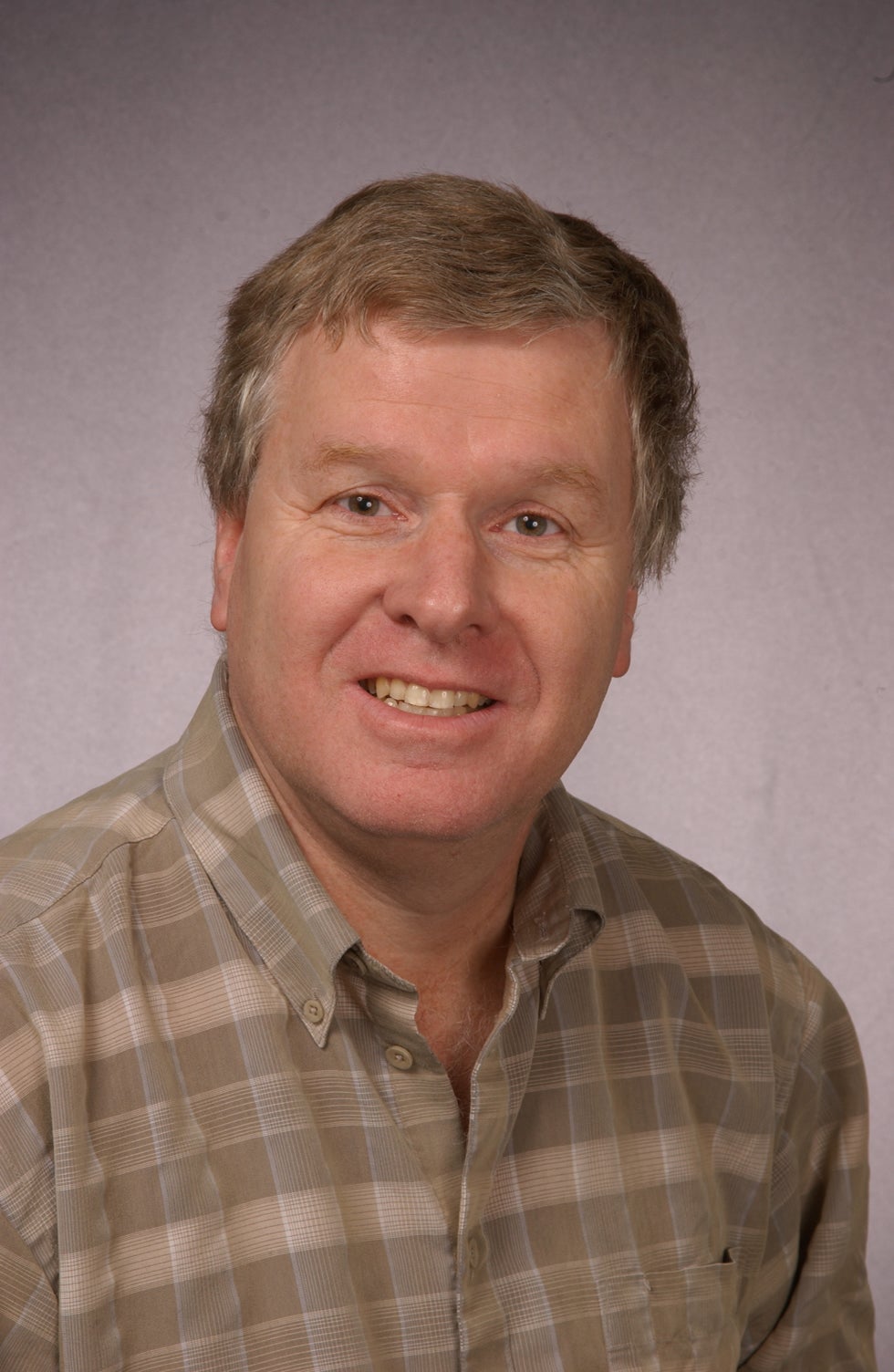
Gord Willmot is a professor of statistics and actuarial science.
He is a widely sought-after supervisor, due in large part to his significant contributions to research, his stature in the scholarly community and his storied career.
Willmot began his work at Waterloo as an undergraduate student in 1975, then went on to complete his master’s and PhD at Waterloo before joining the faculty.
He has supervised some 65 master’s, PhD and post-doctoral research projects during his tenure with the Department of Statistics and Actuarial Sciences.
Willmot’s approach to mentorship and supervision is based on the ways he himself was mentored and the collegiality that he was shown. He likens supervision of graduate students to paying it forward, and notes with pride that many of his former graduate students have become respected colleagues and friends.
“For me, it all comes down to respect and collegiality,” said Willmot. “I think the key to supervision is to give the student the opportunity to pursue their own interests and to respect their autonomy.”
Environment honours outstanding faculty and staff

This article was originally published on the Faculty of Environment's website.
The Faculty of Environment has introduced four annual awards in recognition of faculty and staff for their exceptional contributions and dedication to their field which has led to the enrichment of the Faculty.
This is consistent with the Together for a Sustainable Future Faculty strategic goal of demonstrating “an ethos of caring in all that we do”, and particularly focuses on the commitment to “be a culture that supports educators and celebrates educational excellence.”
Recipients of the awards are recognized in the Teaching, Research, and Service (for both faculty and staff) categories.
The Teaching award recognizes excellence in teaching that has a positive impact on students or education. The recipient of this award uses innovation in their teaching techniques and creates an environment conducive to learning.
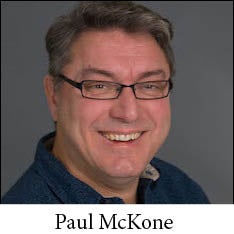
This year’s recipient of the Teaching award is Paul McKone, a senior design instructor who has helped shape the Waterloo Unlimited Enrichment Program. He influenced the creation of the Knowledge Integration program where he teaches. McKone’s teaching style is described as lively and inclusive. He utilizes innovative hands-on projects that engage his students and inspires his colleagues.
The Research award is awarded based on both quality and quantity of research that creates an impact or standing within the academy. The recipient will actively participate as an academic citizen and inspire others through knowledge mobilization.
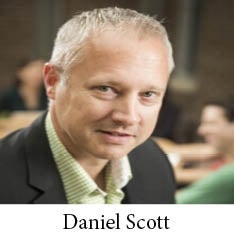
Professor Daniel Scott, the winner of the Research Award is a world-renowned climate researcher. Scott works exclusively on the two-way interactions between climate change and tourism. Recognized as one of the most influential climate scientists globally, Scott is a highly sought-after consultant and is commended for his academic and policy impacts in his field.
In the Service award category, which is for both faculty and staff, the recipients will show strong leadership skills within the university, faculty or unit. In addition, the recipients of the award must have participated in a diverse number of responsibilities that positively impact those around them, while also demonstrating an ethos of caring.
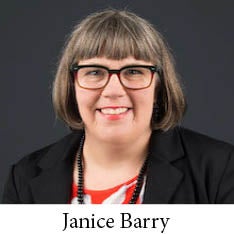
Professor Janice Barry, the recipient of this year’s Service award for faculty is known around campus for her inspiring leadership roles as well as her focus on equality, inclusion, and Indigenization issues within the planning field. Barry’s dedication to social justice has not only created lasting positive impacts on students but also strengthened the connection between the Faculty and First Nations communities.
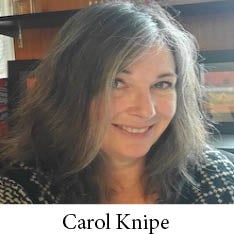
Carol Knipe, the Service award winner for staff acts as the Faculty of Environment undergraduate coordinator and is responsible for a large array of complex responsibilities which she performs with a great degree of skill and diplomacy. Knipe’s contributions include the development and implementation of policy, programs, and curricular matters in which she symbolizes the ethos of caring.
Congratulations to all faculty and staff recipients.
Philanthropic champion supports a low-carbon, resilient future
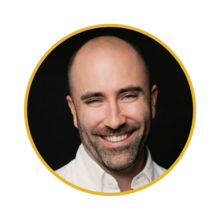
The University of Waterloo’s Interdisciplinary Centre on Climate Change (IC3) empowers businesses, governments, and civil society to respond effectively to climate change. Now, thanks to a generous gift from entrepreneur Phil Caravaggio, IC3 will be able to share research in new, creative ways to help us all build a low-carbon, resilient future.
Caravaggio is the Co-Founder at Precision Nutrition, the largest private nutrition education and research company in the world. His generous gift of $240,000 will be used to translate the interdisciplinary research and insights of IC3 members in innovative ways that reach broader audiences and result in real uptake and impact.
Learn more on the IC3 website.
Electric vehicle challenge coming this weekend

Teams from over 10 high schools and colleges across Ontario will compete in the ninth Waterloo Electric Vehicle (EV) Challenge on Saturday, May 28. Students will compete in two endurance races, driving electric cars they have designed and built from scratch on a temporary street racing course set up in Waterloo’s East Campus. This competition is unique to the University of Waterloo – you will not see these cars racing anywhere else in Canada.
Admission and parking for the event are free. Register on the Waterloo EV Challenge 2022 page.
Q Lot permit holders don't have to go home, but they can't park here
Parking Services has notified Q Lot parking permit holders that due to this weekend's Electric Vehicle Challenge competition, the parking lot will be closed for the race on Saturday, May 28, with a rain date of Sunday, May 29.
"If you will be visiting the campus on May 28 or May 29 your monthly permit will allow you to park in any ungated visitor lot, the next closest to Q lot would be N," says the announcement from Parking Services. "If you need to leave your vehicle overnight please contact parking services for alternate parking by Friday May 27 at 4:00 p.m.
Signs have been posted at the entry to Q lot to advise campus staff and visitors of the impending closure.
"We appreciate your understanding and cooperation," says Parking Services. "If you have any questions specific to the event please contact Parking Services."
Link of the day
30 years ago: Barney & Friends
When and Where to get support
Students can visit the Student Success Office online for supports including academic development, international student resources, immigration consulting, leadership development, exchange and study abroad, and opportunities to get involved.
Instructors looking for targeted support for developing online components for blended learning courses, transitioning remote to fully online courses, revising current online courses, and more please visit Agile Development | Centre for Extended Learning | University of Waterloo (uwaterloo.ca).
Instructors can visit the Keep Learning website to get support on adapting their teaching and learning plans for an online environment.
Course templates are available within your course in LEARN to help you build and edit your content and assignment pages quickly.
The following workshops, webinars, and events are offered by the KL team (CTE, CEL, ITMS, LIB):
- Independent Remote Course Design Essentials, self-directed, continuous self-enrollment course in LEARN.
- Independent Blended Course Design (iBlend), self-directed, ongoing
- Copyright Overview for Waterloo Instructors and Staff - self-directed, continuous self-enrollment course in LEARN.
Supports are available for employees returning to campus. Visit IST’s Hybrid Work and Technology guidelines and workplace protocols to assist with the transition.
The Writing and Communication Centre has virtual services and programs to help undergrads, grad students, postdocs and faculty members with academic writing.
- Meet with writing advisors in one-to-one appointments to brainstorm, draft, revise, and polish. No time for an appointment? Try email tutoring for undergrads.
- Beat isolation and make writing progress at weekly Virtual Writing Cafés for grad students and faculty or PJ-Friendly Writing Groups for Undergrads.
- Take an online workshop or apply to our popular Dissertation Boot Camp program.
- Faculty can request custom in-class workshops for their courses, or the WCC can facilitate any existing workshops for student groups.
- Course-integrated support available. Attention faculty and instructors: The application form for Writing and Communication Centre course-integrated support is now available online. We offer five unique support streams for your courses including synchronous and asynchronous workshops and monitored discussion boards.
Co-op students can get help finding a job and find supports to successfully work remotely, develop new skills, access wellness and career information, and contact a co-op or career advisor.
The Centre for Career Action (CCA) has services and programs to support undergrads, grad students, postdocs, alumni, and employees in figuring out what they value, what they’re good at, and how to access meaningful work, co-op, volunteer, or graduate/professional school opportunities. Questions about CCA's services? Live chat, call 519-888-4047, or stop by our front desk in the Tatham Centre 8:30 a.m. to 4:30 p.m., Monday to Friday.
Drop-in to Warrior Virtual Study Halls on Wednesdays from 5:30 p.m. to 7:00 p.m. Come together in this virtual space to set goals and work independently or in groups each week.
Renison's English Language Institute continues to offer virtual events and workshops to help students practice their English language skills.
If you feel overwhelmed or anxious and need to talk to somebody, please contact the University’s Campus Wellness services, either Health Services or Counselling Services. You can also contact the University's Centre for Mental Health Research and Treatment. Good2Talk is a post-secondary student helpline available to all students.
The Library is open with expanded hours for access to book stacks, drop-in individual study space, bookable group study rooms, drop-in access to computers and printers, book pick-up services and IST Help Desk support. Librarian consultations, Special Collections & Archives and the Geospatial Centre are available by appointment. Full details on current services and hours are available on the Library’s COVID-19 Update webpage.
The Faculty Association of the University of Waterloo (FAUW) continues to advocate for its members. Check out the FAUW blog for more information.
The University of Waterloo Staff Association (UWSA) continues to advocate for its members. Check out the UWSA blog for more information.
The Sexual Violence Prevention and Response Office (SVPRO) supports all members of the University of Waterloo campus community who have experienced, or been impacted, by sexual violence. This includes all students, staff, faculty and visitors on the main campus, the satellite campuses, and at the affiliated and federated Waterloo Institutes and Colleges. For support, email: svpro@uwaterloo.ca or visit the SVPRO website.
The Office of Indigenous Relations is a central hub that provides guidance, support, and resources to all Indigenous and non-Indigenous campus community members and oversees the University's Indigenization strategy.
The Waterloo Indigenous Student Centre, based at St. Paul’s University College, provides support and resources for Indigenous students, and educational outreach programs for the broader community, including lectures, and events.
WUSA supports for students:
Peer support - MATES, Glow Centre, RAISE, Women’s Centre - Visit https://wusa.ca/services/wusa-peer-support to book an appointment either in person or online for the Fall term.
Food Support Service food hampers are currently available from the Turnkey Desk 24/7 in the Student Life Centre. Drop off locations are also open again in SLC, DC, DP, SCH and all residences.
Co-op Connection all available online. Check https://wusa.ca for more details.
Centre for Academic Policy Support - CAPS is here to assist Waterloo undergraduates throughout their experience in navigating academic policy in the instances of filing petitions, grievances and appeals. Please contact them at caps@wusa.ca. More information is available.
WUSA Student Legal Protection Program - Seeking legal counsel can be intimidating, especially if it’s your first time facing a legal issue. The legal assistance helpline provides quick access to legal advice in any area of law, including criminal. Just call 1-833-202-4571.
Empower Me is a confidential mental health and wellness service that connects students with qualified counsellors 24/7. They can be reached at 1-833-628-5589.
GSA-UW supports for graduate students:
The Graduate Student Association (GSA-UW) supports students’ academic and social experience and promotes their well-being.
Advising and Support - The GSA advises graduate students experiencing challenges and can help with navigating university policies & filing a grievance, appeal, or petition.
Mental Health covered by the Health Plan - The GSA Health Plan now has an 80 per cent coverage rate (up to $800/year) for Mental Health Practitioners. Your plan includes coverage for psychologists, registered social workers, psychotherapists, and clinical counselors.
Dental Care - The GSA Dental Plan covers 60 to 70 per cent of your dental costs and by visiting dental professionals who are members of the Studentcare Networks, you can receive an additional 20 to 30 per cent coverage.
Student Legal Protection Program - Your GSA fees give you access to unlimited legal advice, accessible via a toll-free helpline: +1-833-202-4571. This advice covers topics including housing disputes, employment disputes, and disputes with an academic institution.
The Graduate House: Open Monday to Tuesday 11:30 a.m. to 7:00 p.m. and Wednesday to Friday 11:30 a.m. to 9:00 p.m. We’re open to all students, faculty, staff, and community members. The Graduate House is a community space run by the GSA-UW. We’re adding new items to the menu. Graduate students who paid their fees can get discounts and free coffee.
When and Where (but mostly when)
Warriors vs. Laurier Blood Donation Battle. Join our “Waterloo Warriors” team on the Blood.ca website or app. #ItsInYouToGive
Equity and inclusion in industry sponsored contract research and commercialization consultations for researchers, Monday, May 9 to Friday, June 3. Sign up for an interview timeslot.
NEW - Alumni Weekend, Saturday, June 4, 9:00 a.m. to 9:00 p.m.
NEW - Paint Brubacher House!, Brubacher House Artist-in-Residence Workshops with Yulia Balobanova, Saturday, June 4, 3:30 p.m., BRH (Brubacher House, North Campus UW).
NEW - TD Walter Bean Visiting Professorship: faculty & graduate student meetings, Monday, June 6 to Friday, June 10.
NEW - “Moving Forward by Slowing Down: Considering Diverse Perspectives on Drug Decriminalization and Legalization,” in person or online for the Waterloo community (online for the general public). Tuesday, June 7, 1:00 p.m. to 3:30 p.m. Keynote: Dr. João Goulão, Ministry of Health, Portugal. Followed by a panel moderated by Globe and Mail journalist André Picard.
NEW - Master of Taxation Virtual Information Session, Wednesday, June 8, 4:00 p.m.
NEW - CPI Talk: Digital Disinformation and Democracy, Wednesday, June 8, 6:30 p.m., Zoom.
NEW - Building Respectful Research Relationships with Indigenous Communities Webinar, Indigenous History Month 2022, Thursday, June 9, 12:00 p.m.